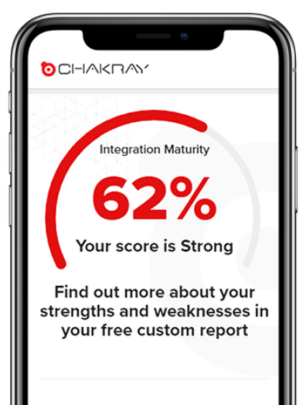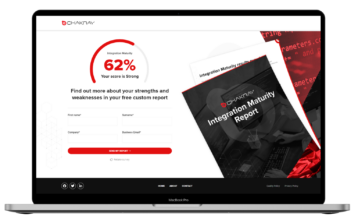Many think that digital transformation is merely a technological change, but they are very wrong, since it is much more than that. You should be aware that it is not simply about the “digitalization” of your company or its online presence – it goes beyond that… Do you want to discover it? Take a seat… you are at the right place!
Definition of Digital Transformation
Digital transformation emerged out of the onset and development of new technologies. It implies an opportunity that has changed the way in which companies and organizations (both for profit and nonprofit) work, offering a greater value to their customers.
-Cybersecurity in digital transformation-
It should be noted that it is not simply a technological change; it implies a turning point for individuals within an organization, empowering them and allowing them to develop new skills, generating a positive impact in their company.
“Digital transformation implies the adoption of new technologies for various company processes, activities and departments, improving its efficiency, reducing its costs and providing greater value to the customer”
As stated by the IDC consulting firm, 66% of CEOs consider that the digital transformation of their organizations is key within their strategy or business plan. As should be expected!
Thanks to the adoption of these new technologies, companies have a greater competitiveness and power when compared to their competitors, and this fact, in an environment of constant change as the one we have today is, quite simply, paramount.
Digital Transformation Trends
You have probably heard about some of these business trends of digital transformation, and this is because in addition to being applied today, many are the future due to their great importance:
- Big Data: while we have been hearing about Big Data for a while now, it has an ever-increasing importance in companies. The number of organizations that need to have a greater amount of data, and access to it, is on the rise. Big Data implies leaving traditional statistical models with biased samples behind, to move on to analyzing massive amounts of data. This fact is truly significant for companies, since those that collect useful data will have a greater decision-making power. It is the perfect time to remind you that… knowledge is power!
- Artificial Intelligence (AI): it is a consequence of Big Data, and you might think that this is a new concept, but no, since its origins date back to the ‘90s. However, very few organizations are prepared to implement AI to their activities and processes – more specifically, 20% according to the SAS consulting firm. Incorporating Artificial Intelligence to a company would facilitate and foster productivity, and a better use of their human resources.
- IoT: the Internet of Things, in addition to being a technological phenomenon, is the driver of digital transformation in companies and the society. IoT is the result of the proliferation of mobile devices and a booming user interconnectivity. The ability to analyze data has encouraged the development of reliable productive models, and cloud is the platform that has favored the development of diverse business models due to its scalability and data storage…
- Cloud Computing: in a corporate digital transformation plan, the adoption of the cloud may significantly help in its success. According to RightScale, last year over 90% of companies that developed their digital transformation did so on top of cloud computing, due to the great benefits it offers. Oh! The only “drawback” is that attaining the digital transformation of your company over the cloud will require a redesign of your IT architecture.
Examples of Digital Transformation
Major companies from various industries (banking, retail, telcos…) have experienced true digital transformations in the last few years that have changed their activities and processes.
Caixabank, Zara, T-Mobile and General Electric are some examples of national and international companies that have opted for transformation and efficiency.
-This post will interest you!: Smart Analytics, three success stories on the way to victory-.
This transformation process has not only been undertaken by private companies – public associations or organizations have also adopted this digital transformation, such as, for example, Fundación Progreso y Salud of the Andalusia City Hall Health Advisory Council.
Solutions for attaining Digital Transformation
Attaining digital transformation in your company is a chance that you must not forego if you intend to achieve a competitive organization that is prepared for challenges and future innovations. To address this, there are solutions such as WSO2 that facilitate the development and implementation of a digital architecture.
-Check this out! All you need to know about WSO2 and its solutions-
If you still don’t know WSO2, it is an all-in-one open-source software that offers a myriad of solutions that can boost digitalization and efficiency in your company. Some of the products and services it offers are API management; integration, identification and access and analytics, among many others.
It is undoubtedly the simplest way to transform your organization and accomplish a fast, low-risk integration that is much cheaper than other proprietary software solutions. As you can see, it is chock-full of advantages!
Let out experts advise you, no strings attached. They will help you choose the option that best suits your current and future business needs.
Digital transformation is not an option – it must be your priority!








